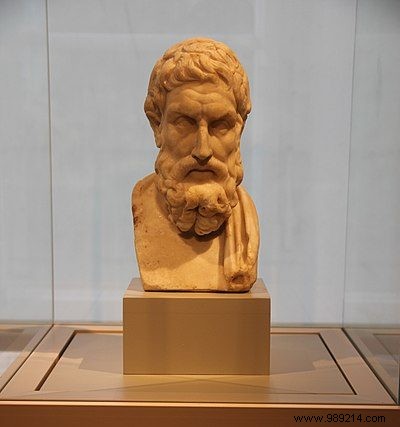Wanting to be happy is obviously linked to well-being and health. However, this quest can never lead to something perfect, so many people can eventually become unhappy and depressed.
In his book The Enlightenment:The Pursuit of Happiness 1680-179 0 (2020), British historian Ritchie Robertson presents his thesis concerning the Enlightenment . According to the person concerned, quoted in a BBC Future article on January 6, 2020, the Age of Enlightenment should not be interpreted as the increase in the value of reason itself, but rather as the quest for happiness through reason . Even then, the defining intellectual force of modernity embodied happiness. However, we are still today in the quest for the culmination of this "project". It seems that happiness has always been considered the greatest good. On the other hand, human values and emotions are not frozen in time . For example, certain values of the past such as honor and piety are now relegated to the background for a majority of people.
When it comes to our life choices, we generally make them accompanied by hope in order to achieve happiness. However, this quest for happiness is an obsession for many people. However, posting yourself as eternally dissatisfied could be a source of unhappiness and depression. Remember that there is very little scientific research to analyze our intense search for happiness. However, let us quote a survey carried out in the United States in 2016, in which participants had to give their preference between accomplishing great things or simply being happy in their lives. However, no less than 81% of respondents chose the second answer.
While there is very little scientific content on the subject, this is not the case when it comes to philosophy. Many people will say that happiness comes through the maximization of pleasures , but there are other possibilities. The Greek philosopher Epicurus (341-270 BC) said, on the other hand, that living happily and achieving peace of mind passed through the minimization of one's sorrows . Does that mean that you have to experience pain in order to have a happy life? Not necessarily.

British philosopher John Stuart Mill (1806-1873 ) received an education based on minimizing pain and maximizing pleasure. However, he was not always happy, as his writings show. In the grip of depression, the man had finally realized that, quite simply, unhappiness is also part of the human condition . John Stuart Mill thought it was better to achieve good things in life than to chase after happiness. In other words, a good life is not necessarily happy, at least not permanently. This way of seeing things is in line with the idea established by Aristotle (384-322 BC). The Greek philosopher maintained the existence of a close link between being a good person and being happy.
Thus, cultivating happiness would amount to performing virtuous acts on a daily basis . Nevertheless, Aristotle recognized that happiness is also subject to certain hazards, such as luck and the occurrence of events that are totally beyond us, such as illness, poverty or even war. Obviously, accepting the fact that it is impossible to control everything does not make you happy in itself . On the other hand, this could make it possible to avoid running eternally after perfect happiness.